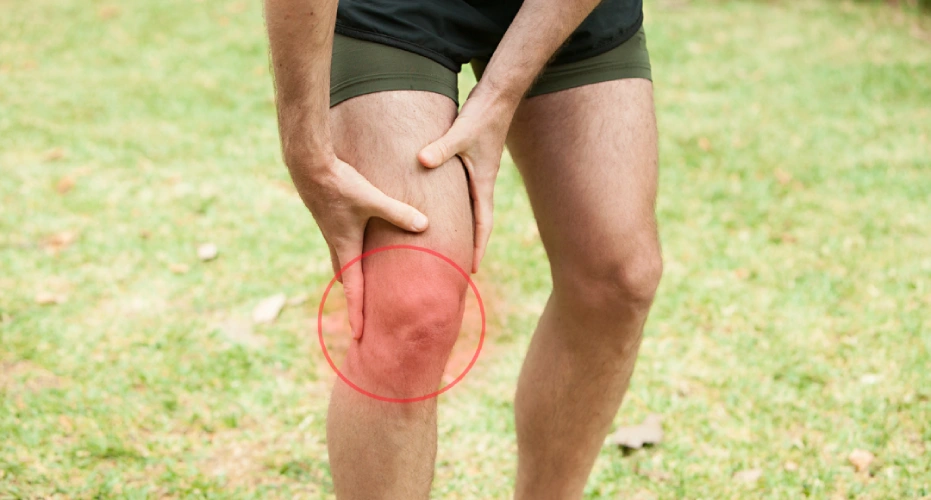For years, the debate has raged on: Is running bad for your knees? Many non-runners have raised concerns about the potential harm this high-impact activity might inflict on the delicate joints. The imminent risk of osteoarthritis has individuals debating whether to lace up their jogging shoes or stay away. Let’s dive into the real story behind running and knee health, sorting fact from fiction based on recent research.
What People Think?
A fascinating 2018 study by Esculier et al. surveyed both runners and non-runners about their beliefs on runner’s knee impact. Surprisingly, non-runners were more cautious about the effect of running on knees. Here’s what they thought:
- Regular running hurts the knee joint: Only 13.1% agreed, with 25.9% uncertain.
- Running frequently leads to knee arthritis: Only 7.3% agreed, with 33.9% uncertain.
- Running marathons or long distances causes knee arthritis: Only 15.5% agreed, with 43.6% uncertain.
- Running with knee arthritis causes greater knee damage: Only 17.9% agreed, with 48.4% uncertain.
- Running with knee arthritis speeds up the need for a knee replacement: Only 12.4% agreed, with 53.1% uncertain.
The Truth About Running and Knee Health
Contrary to common belief, research suggests that knee osteoarthritis is more common in non-runners. While factors like age, gender, genetics, and past injuries play a role, controllable factors like obesity, poor biomechanics, heavy workloads, and muscle weakness also matter.
What does the research say?
A systematic review and meta-analysis conducted in 2021 revealed that running might benefit knee health. Running applies stress to the knee joint, believed to enhance nutrient penetration into knee cartilage while flushing out metabolic substances. Cartilage is crucial for bone movement, shock absorption, and reducing friction in joints, making running joint-friendly.
In a 2017 study involving 2,637 adults, researchers found that runners didn’t exhibit a higher risk of developing knee osteoarthritis compared to non-runners. Additionally, a 2019 cohort study with adults aged 50 and above showed that running not only didn’t worsen knee pain or structural degradation over time but also reduced pain in individuals with knee osteoarthritis.
A review of 25 studies in 2017 by Alentorn-Geli et al. revealed that recreational runners had a lower prevalence of arthritis (only 3.5%) compared to predominantly sedentary individuals (10.2%).
Beyond Knee Health: Running’s Hidden Benefits
Running offers numerous health benefits beyond knee health. It improves cardiovascular health, aids in diabetic control, enhances mental well-being, boosts bone density, helps manage weight, increases pain tolerance, and improves balance. It’s a holistic activity that positively impacts overall well-being. If safeguarding your knees while running concerns you, consider these tips:
- Wear appropriate, high-quality running shoes.
- Gradually increase your running distance, especially if you’re new to running.
- Allow ample recovery time between runs, avoiding consecutive days of intense running.
- Incorporate focused strength training and flexibility exercises into your routine.
- Cross-train with activities like cycling and Pilates.
- Prioritise good general health through nutrition, sleep, maintaining a healthy BMI, and
stress reduction. - Include dynamic warm-ups and stretches in your pre-run routine.
Resilient Runner’s Knees

A 2020 study suggests that runner’s knees are not “bad” but rather resilient. The knee cartilage appears to adapt to the demands of running over time, further emphasizing that running is a safe and beneficial activity for most individuals. In the words of performance coach Joseph Lightfoot, “Lots of studies show that runners have lower instances of knee osteoarthritis than sedentary people. There are also papers that show that runners report less knee pain than sedentary people, and being a runner is linked to reduced disability in later life. Overall, the message from the research is that running is a good thing.”
The Final Verdict
Running isn’t the knee destroyer many believe it to be. In fact, for most people, it’s knee-friendly and protective! If you have specific concerns about your knee health, consider consulting a professional for further advice. Happy running!

